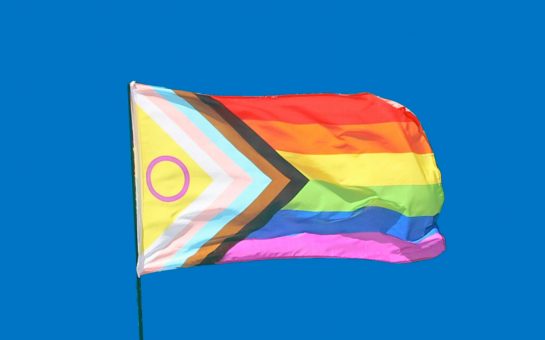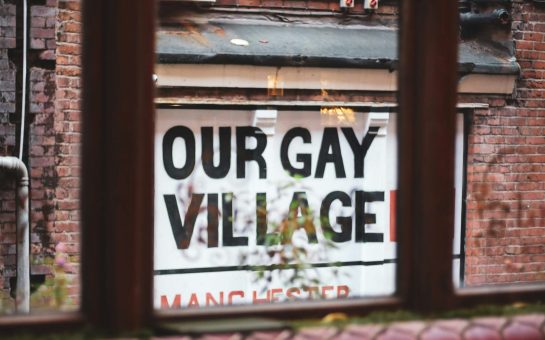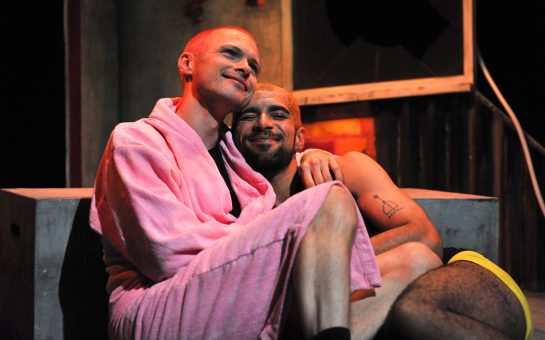This year marks the 50th anniversary of John F. Kennedy’s assassination in Dallas, Texas.
With all the films, books and documentaries about him, including the latest revelations that JFK may have been accidentally killed in ‘friendly fire’ by a clumsy secret service agent, you might wonder if anything new could be written about him.
But that’s exactly what David Pitts did when he discovered John F. Kennedy had a unique, life-long friendship with Kirk LeMoyne ‘Lem’ Billings – the importance and depth of which he didn’t realise until he started writing his book Jack and Lem: John F. Kennedy and Lem Billings: The Untold Story of an Extraordinary Friendship.
What made their friendship even more interesting was the fact that Kennedy, an aspiring politician ambitious enough to one day become President, was friends with Billings – an openly gay man at a time when homosexuality was illegal across the United States.
Mr Pitts became fascinated with Kennedy at the age of 13 after seeing his 1961 inaugural address from his parents’ Manchester home.
He said: “I had already taken an interest in politics but I had never heard a politician talk as JFK did that day.
“The speech was dripping with idealism and of course it would later be judged as one of the best inaugural addresses in American history. That morning, I guess I sensed that.”
Mr Pitts began to read books about Kennedy and sensed a close and unusual friendship between the two men.
He said: “At first, I thought Lem would prove to be a political confidante for JFK, but as I read the letters and other documents, and also began interviewing people who knew them both, I soon realised that this was a profoundly important friendship that transcended politics.”
Kennedy and Billings met at elite preparatory school Choate, patterned on austere British private schools like Eton and Harrow.
Both young men hated the school they attended, had higher-achieving older brothers at the same school, and both were natural rebels who loved to have fun.
They came closer after Billings took care of Kennedy, who was very ill as a young boy.
“Lem would have done everything he could to cement the friendship,” Mr Pitts said.
And at some point, Billings fell for Kennedy. But Mr Pitts does not believe Kennedy and Billings had a long-term sexual relationship, as is sometimes suspected by Kennedy historians.
“My own thought is that sexual relations might have occurred between Jack and Lem, especially when they were young and at Choate, but there is no conclusive evidence,” he said.
“I was determined to put in my book only material I could prove either by reference to documents or through interviewees in a position to know.”
Billings proved extremely popular with Kennedy’s family, in fact Kennedy’s father, Joseph Sr, even referred to Billings as ‘my second son’.
Although it was likely Billings’ homosexuality was never discussed, the Catholic Kennedys were not in the habit of judging people.
Mr Pitts said: “They were liberal Catholics; they all remembered how Irish Catholics were judged in Boston and the ‘No Irish need apply’ signs.
“They just accepted Lem for who he was and for the fact that he was such a good friend to Jack.
“Lem could have proven a huge embarrassment to Kennedy politically had his sexual orientation become widely known, but as we know JFK took risks – and that was the case for sure with Lem.”
While writing the book Mr Pitts was surprised at just how devoted the two men were to each other.
Kennedy stood by Billings for 30 years and even after Kennedy’s assassination in 1963, the President was at the centre of Billings’ life until his death in 1981.
And this extraordinary story, which Mr Pitts says is one of the few stories about Kennedy still not widely known, may soon be adapted into a film.
Mr Pitts’ book has now been optioned for a film adaptation and a screenplay has been written by James Duke Mason, grandson of actor James Mason and son of Morgan Mason – the head of London Pictures.
“I think the Kennedy presidency represented hope and idealism even though he was the leader of this country at the height of the Cold War,” Mr Pitts said.
“It was a special time in American life; he was able to convince Americans that better days lay ahead by the sheer power of his personality and of course his eloquence.
“He had such an immensely broad vision that captured the hopes not just of Americans but also of people around the world.
“As he said one time, ‘We all inhabit this small planet, we all cherish our children’s future, and we are all mortal’.”
Picture courtesy of John F. Kennedy Library and Museum via Wiki Commons, with thanks
For more on this story and many others, follow Mancunian Matters on Twitter and Facebook.



